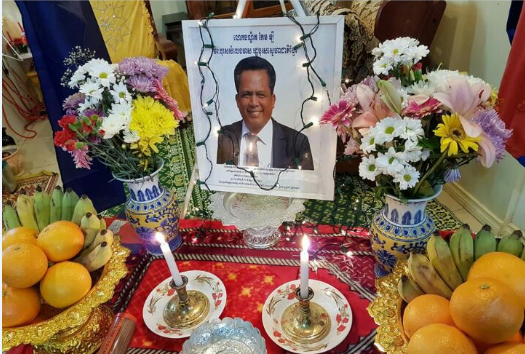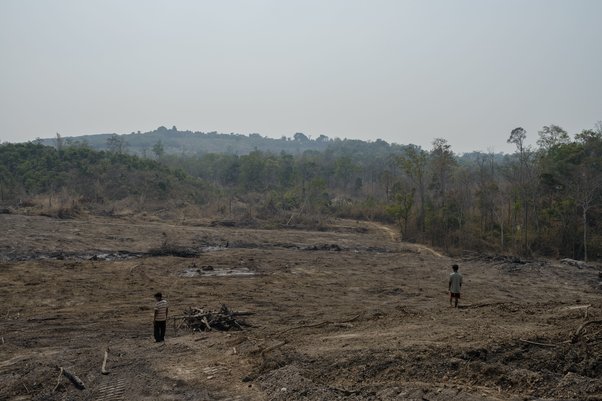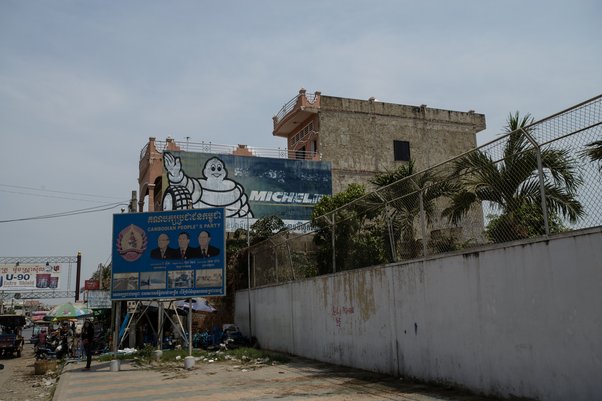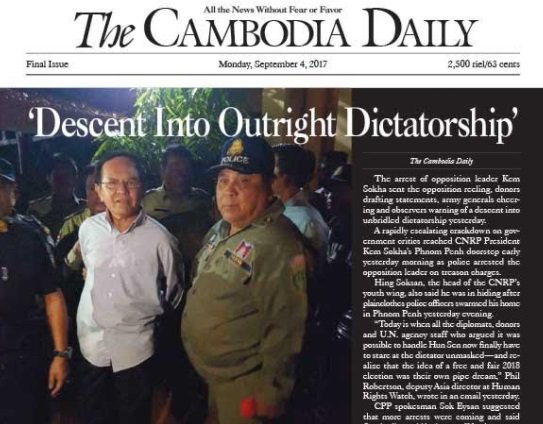Political assassinations had begun to feel like a thing of the past in Cambodia. That changed a year ago today.
Political assassinations had begun to feel like a thing of the past in Cambodia. The murders that haunted the 1990s and early 2000s began to wane about a decade ago as the country’s prime minister succeeded in defeating or muzzling key rivals.
That changed a year ago today, in broad daylight on a busy intersection in the capital Phnom Penh. Kem Ley, one of the country’s most popular political pundits, was drinking his morning coffee at a downtown petrol station when he was shot dead at close range. Witnesses say his assassin calmly exited the building and wandered away on foot.
The man, who called himself Chuob Somlab (which translates as “Meet Kill”), was arrested later that day. But one year on, it’s hard to feel that justice has been served.
“Meet Kill” was sentenced to life in prison following what can only be described as a show trial, with no questions asked about who may have contracted him. Kem Ley’s widow and their five children are still holed up in a single hotel room in Thailand awaiting asylum in Australia. And as the government ramps up its intimidation of the opposition ahead of next year’s elections, even its bravest opponents are afraid to speak out.
Global Witness never had any contact with Kem Ley, but his murder moved us deeply. In the week before his death we published an investigation that shed light on a huge network of secret deal-making and corruption that has allowed family members of Cambodia’s prime minister Hun Sen to amass vast wealth, with extreme consequences for the population.
From petrol stations to cell phones to shopping malls, we showed how the family wields significant control across most of the country’s major industries, with links to major international brands like Apple, Nokia, Visa and Honda.
Our report, Hostile Takeover, showed how domestic companies the Huns are affiliated to stand accused of a litany of abuses, including land grabbing, violence and intimidation that has caused mass displacement and destitution among Cambodia’s rural poor. This in a country where 40% of the population still lives in or close to poverty.
It was injustices like these that propelled Kem Ley into the political sphere. In recent years he travelled widely to meet with rural families, and would air their grievances in regular radio and television appearances. He campaigned against land seizures, illegal logging and pollution – all symptoms of a political system that’s based on handing out large troves of land and natural resources to cronies and political party donors.

Kem Ley also founded an independent political party which planned on fielding candidates for this year’s local elections. In a radio interview shortly after its launch, he praised Hostile Takeover. He said it provided important information for voters and investors about the people and cultures they choose to support.
The response to Kem Ley’s death bore all the hallmarks of the corruption and impunity he sought to expose. “Meet Kill”’s trial lasted just half a day, despite glaring holes in his story, and the fact that key witnesses were missing. According to media reports, even the defendant’s identity was questioned. His wife and mother produced a fingerprinted ID card showing his real name was Oeuth Ang, despite his protestations to the contrary. They denied his claims that he was an unmarried migrant worker, or that he came from the province he purported to, saying instead that he was a former forest ranger and soldier.
The killer’s stated motives weren’t interrogated either. Oeuth Ang said he shot Kem Ley in revenge for a $3000 unpaid debt. No evidence was presented in court to prove that, or that the two men had even ever met.
This weekend thousands of people took to the streets in Cambodia in memory of Kem Ley. Rights groups meanwhile, including Global Witness, are calling on the government to launch an independent inquiry into his murder, and to provide answers to the many questions that Oeuth Ang’s trial left unanswered.
While this assassination conjures memories of a darker chapter in Cambodia’s history, the public’s response offers hope for change. Kem Ley has captured the hearts of a nation that is now younger than ever and critically, digitally savvy. His portrait has become an iconic image across social media, inspiring online conversations that are proving harder for the government to police than traditional media, which is significantly controlled by the Hun family. This is opening up new avenues for the sort of critical questioning that Kem Ley espoused.
This is not a time to take risks in Cambodia. With general elections in 2018, the ruling party may well ramp up its efforts to lock up, silence and spy on its critics. But as Kem Ley said in his final radio interview, “Will people keep supporting this kind of culture? If they do, they’ll keep supporting the status quo. But some might say, “No, I won’t.” Transparency is crucial for them to make a decision when they vote.”
By Emma Burnett


